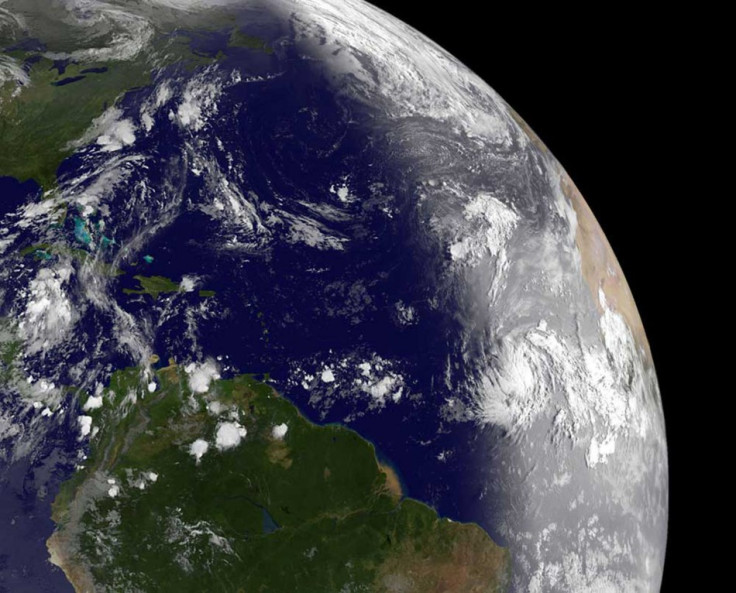Earth's Water 'Predates Sun' Giving Hope for Alien Life on Other Planets

Earth's water is older than the sun, having formed as ices in interstellar space, scientists have discovered.
Published in Science, researchers said their findings provide hope that there is life on other planets.
"Why this is important? If water in the early solar system was primarily inherited as ice from interstellar space, then it is likely that similar ices, along with the prebiotic organic matter that they contain, are abundant in most or all protoplanetary disks around forming stars," Conel Alexander, from Carnegie Institution, explained.
Water was essential to the rise of life on Earth and is an important factor in determining the possibility of alien life.
By identifying the source of Earth's water, researchers are better able to understand how life-fostering environments formed and how likely they are to be discovered on other planets.
Water is found throughout our solar system – on icy comets, moons and the basins of Mercury. However, comets and asteroids are particularly important because they serve as a natural time capsule, showing the conditions when the solar system was very young.
Previously, researchers said the water on Earth could have come from chemical processes that took place during the sun's birth.
By studying the ratios of hydrogen and its heavier isotope deuterium, scientists were able to work out the conditions under which it formed.

Researchers created models that simulated the sun's birth to find out what water would have emerged. They then compared this with hydrogen and deuterium ratios found in water from meteorite samples and Earth's ocean water.
Findings showed at least some of our water must have come from interstellar space, predating the sun.
"Our findings show that a significant fraction of our Solar System's water, the most-fundamental ingredient to fostering life, is older than the Sun, which indicates that abundant, organic-rich interstellar ices should probably be found in all young planetary systems," Alexander said.
Tim Harries, from the University of Exeter's Physics and Astronomy department, added: "This is an important step forward in our quest to find out if life exists on other planets.
"We know that water is vital for the evolution of life on Earth but it was possible that the Earth's water originated in the specific conditions of the early solar system and that those circumstances might occur infrequently elsewhere.
"By identifying the ancient heritage of Earth's water, we can see that the way in which our solar system was formed will not be unique and that exoplanets will form in environments with abundant water. Consequently, it raises the possibility that some exoplanets could house the right conditions, and water resources, for life to evolve."
© Copyright IBTimes 2025. All rights reserved.






















